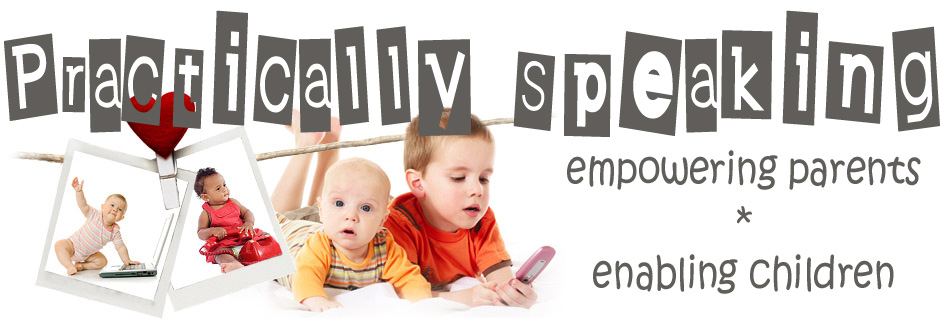As with everything else in your child's life, following instructions is learned through repeated practice. It will not happen overnight and will take some effort from your part. So the idea is to start with the easiest instructions and gradually progress from there. Here are some great everyday tips:
Give your child a sense of competence - praise more and correct less. With following instructions, and in general, a child who feels competent - who believes that he can understand, remember and act accordingly - will be more likely to follow instructions.
Make the most of every opportunity - children learn better when the directions that you give makes sense in the context of what is happening. For example, helping to set the table at mealtime, or putting things away after bath time. The more often you do things together, the more teaching opportunities you will have.
Ensure your child listens and understands when you give directions - avoid failure by making sure that you have your child’s full attention when you give directions. Get down to his eye level so that he can see your facial expression. Squat if you have to. Make eye contact; speak clearly and slowly (where appropriate) using simple words and short, simple sentences.
Use gestures to demonstrate the meaning of your words - when dealing with a baby or toddler, add a natural gesture to help your child understand your message. For example, "come here" paired with a hand gesture; “Give it to me” paired with your hand reaching for the item; or “Go to your room and get your coat” paired with pointing to your toddler’s room.
*Note: As children near the age of 24 months they typically rely less and less on gestures to understand the meaning of language. It’s a good idea to use gestures when you teach new concepts to a child of any age, but if your 2½ year old is unable to follow a wide variety of everyday two-step instructions without gestures, it would be wise to have the child’s hearing tested and consult a speech-and-language therapist. An example of a two-step instruction would be, “Take off your shoes and put it in the bag.”
Use repetition - to follow your directions, your child has to do some mental work. The first step is to understand the meaning of what you are saying and the second step is to remember the directions while acting. After giving the instruction, give him some time to process the information. Then repeat the instruction slowly. This demonstrates to him that repeating an instruction in his head after he has heard it is a good way of remembering it.
With older children, ask your child to repeat your directions after you. This activates his memory. It also tells you if he actually understood your directions.
If needed, take him to a quiet room in the house before giving directions. This eliminates distractions and demonstrates that you have something important to say. The sounds of a radio, television, or others talking, make it more difficult for your child to listen to your directions.
Give your child clear feedback - when your child completes your directions, let him know exactly what was done correctly. This reinforces the learning that has taken place, and builds his confidence. If he didn’t complete your directions at all, show him or tell him exactly what needed to be done. If an attempt is partially successful, praise whatever he did correctly.
Adapt to your child’s level of development - he will be able to understand and follow more difficult directions as his language and memory skills develop. Use the following guidelines to help him progress:
1. At first, use gestures to demonstrate the meaning of simple directions: “Give it to me” while extending your hand.
2. Then teach your child to follow simple directions without gestures: “Stand up.” “Get the ball.” “Sit down.”
3. Following that, he will learn to do one thing with two objects: “Give me the bowl and the spoon.”
4. The next step is where you ask him to do two things with one object: “Get your shoes and put it in the cupboard.”
5. He will then learn to understand a combination of where to go and what to do there: “Go to your room and get your shoes.”
6. Then develop his memory even further by linking two totally separate directions together: “Put your glass on the table and get your teddy from the toybox.”
7. Finally, he should understand and follow a series of three unrelated directions involving three actions: “Put your toys away, go wash your hands and meet me in the kitchen.”
Once you are able to 'place' your child based on the above sequence of their ability to follow instructions, you know where to progress to next.
Most small children want to help out and feel independent and teaching them how to follow instructions is a great way to do this while growing their confidence in their abilities!
Words: Loren Stow
when we know better... we do better
Comments? Please email lizette@practicaprogram.co.za
If you would like to be notified of all new posts via email, please send an email to lizette@practicaprogram.co.za










